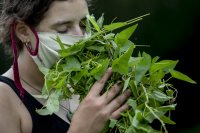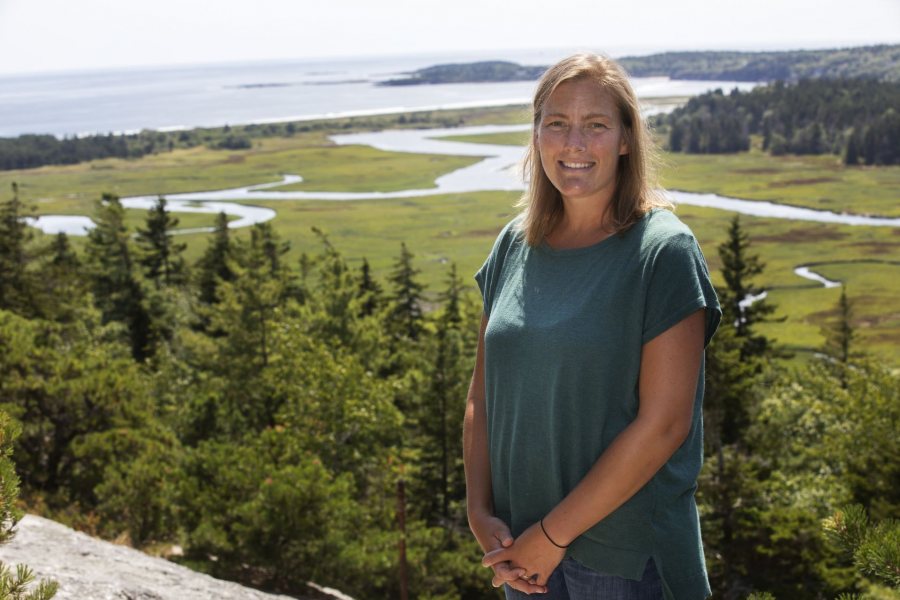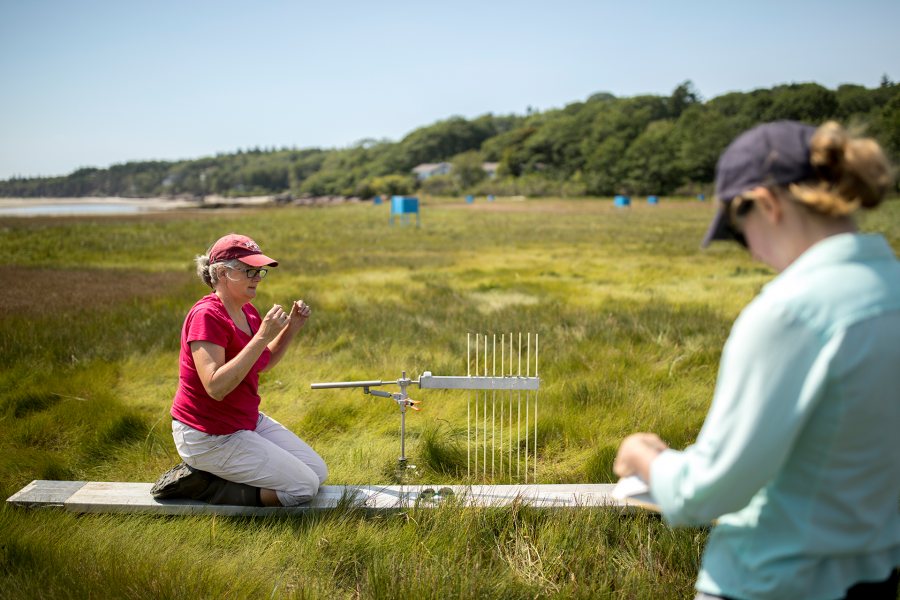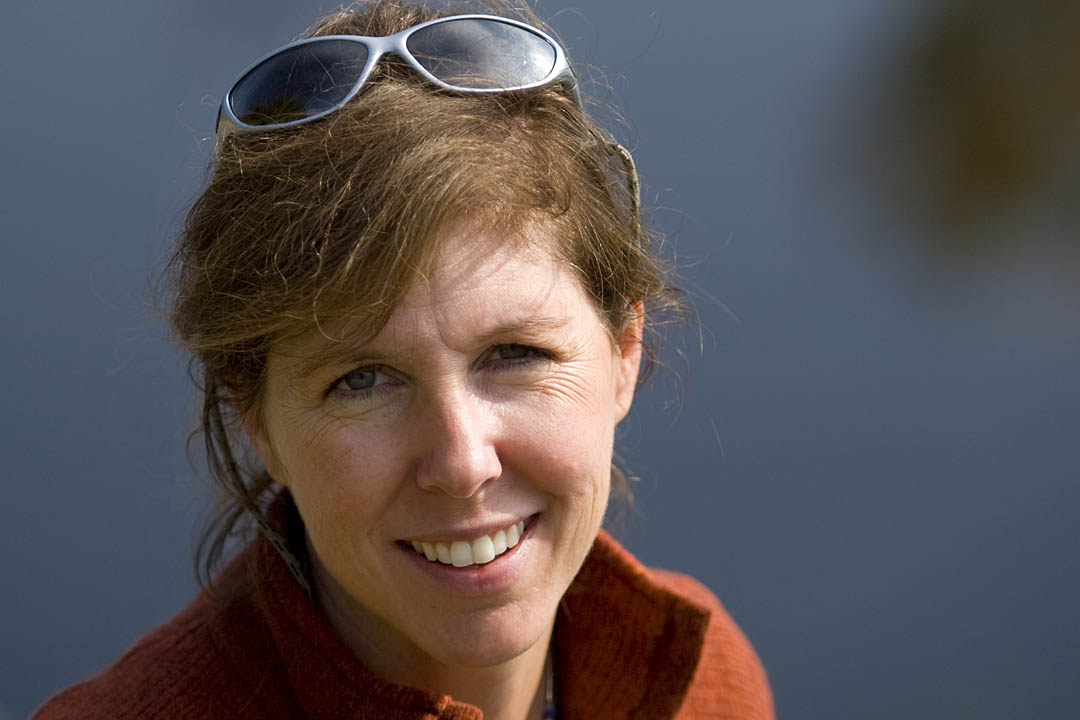
Vice President of Academic Affairs and Dean of the Faculty Malcolm Hill announced that Caitlin Cleaver, former director of science and research at the Hurricane Island Foundation, will become director of the Bates–Morse Mountain Conservation Area and the Bates College Coastal Center at Shortridge effective Aug. 19.
“Caitlin has extensive experience at the intersection of research, education, and conservation, making her the right leader at the right time for Bates–Morse Mountain and Shortridge,” said Hill.
“The work being done at Bates–Morse Mountain and Shortridge by Bates researchers and students, as well as our partners in Maine, is important to our understanding of how a changing climate is affecting the coast. I am confident in Caitlin’s ability to carry out the pivotal mission of these two important and invaluable coastal resources.”

Caitlin Cleaver, the new director of the Bates–Morse Mountain Conservation Area and Bates Coastal Center at Shortridge, poses atop Morse Mountain on Aug. 15, 2019. (Theophil Syslo/Bates College)
“The Bates–Morse Mountain Conservation Area and Coastal Center at Shortridge are outdoor laboratories offering an incredible backdrop for conducting relevant research and exploring solutions to pressing environmental issues,” Cleaver said.
“I am excited to build on the work that has happened in the area and continue to engage Bates students in meaningful interdisciplinary research that can make our coastal communities more resilient in the face of change.”
Managed by Bates for research and educational purposes, the Bates–Morse Mountain Conservation Area comprises some 600 acres of permanently protected salt marshes and coastal uplands on the Phippsburg peninsula. The Nature Conservancy holds conservation easements on the property, which is owned by the nonprofit Bates–Morse Mountain Conservation Area Corporation.
Adjacent to the conservation area, the Bates College Coastal Center at Shortridge sits on 80 acres of woodlands and wetlands, providing a base for academic programs and extracurricular activities including field research, meetings, retreats, and conferences.
As director, Cleaver will oversee day-to-day operations and long-term strategy; facilitate research and educational activities; and expand educational, environmental, and stewardship partnerships with an array of agencies and organizations. She will also lead efforts to attract new grant funding for the facilities and conservation work, and she will teach a new annual course at Shortridge during the college’s spring Short Term.
“Caitlin not only has extensive and impressive experience on the Maine coast, but she has also secured important grants for the Hurricane Island Foundation, and her positive energy is infectious,” said Áslaug Ásgeirsdóttir, associate dean of the faculty and professor of politics, who oversees the director position.

Professor of Geology Beverly Johnson uses a sediment elevation table to measure the height of the Sprague River Salt Marsh, part of the Bates–Morse Mountain Conservation Area, in August 2018. At right is Claire Enterline, senior planner of the Maine Coastal Mapping Initiative, Maine Coastal Program. (Phyllis Graber Jensen/Bates College)
“From teaching a Short Term course to obtaining grants to support the work at BMMCA and Shortridge, Caitlin will carry forward the education, research, and conservation components of the Bates–Morse Mountain Conservation Area, and create exciting new opportunities.”
A Colby College graduate, Cleaver is a doctoral candidate in ecology and environmental sciences at the University of Maine, where she earned master’s degrees in marine biology and marine policy. She also holds a master’s in public policy from Columbia University. Most recently, she was the marine science lead at FB Environmental Associates in Portland, Maine, where she studied lobster fishing gear and right whale entanglement.
In her four years as director of science and research at Hurricane Island, Cleaver collaborated with local fishermen to understand the effects of fishing-area closures on scallop populations and obtained grant funding for a related five-year monitoring project. To connect the foundation with other field stations, Cleaver co-founded, with former BMMCA–Shortridge director Laura Sewall, the Northeastern Coastal Stations Alliance.
“It is critical to train the next generation of scientists and practitioners in understanding the rigor of the scientific process, but also in being able to communicate the implications of their findings to a range of audiences,” Cleaver said.
Cleaver succeeds Sewall, who served as director of BMMCA and Shortridge for 11 years.



